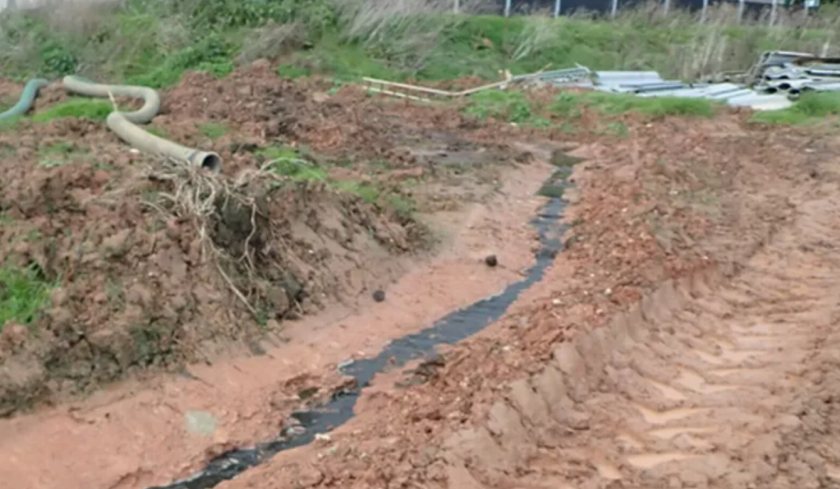Pig producer fined over £5,000 after illegal slurry lagoon pollutes

A Somerset pig farmer has been fined over £5,000 after slurry from an illegally built lagoon overflowed, polluting a nearby stream in what has been described as an “avoidable” incident by the Environment Agency.
James Mitchell of Hillcommon, near Taunton, appeared before Taunton Magistrates’ Court on 18 June, where he pleaded guilty to two environmental offences linked to slurry pollution at Orchard Farm.
The Environment Agency said that the pollution was caused by pig slurry escaping from a storage lagoon which had been constructed without the required notification or engineering evidence.
The slurry overflowed into a soakaway connected to the surface water drainage system, eventually entering the Oake Stream.
He was fined £500, ordered to pay £4,365 in costs, and given a £200 victim surcharge. The district Judge granted Mitchell full credit for his guilty plea and gave him 12 months to pay the total £5,065.
The issue first came to light in 2021 when Mitchell invited Environment Agency officers to Orchard Farm to discuss potential grant funding for roofing to reduce pollution risks.
During this visit, officers identified the unapproved slurry lagoon. While there were no objections to the roofing work, it was made clear that the slurry store would need to be brought into compliance.
In November 2023, the agency received a report of pollution in the Oake Stream. Officers traced the source to Orchard Farm, where they found slurry overflowing and entering the drainage system.
Mitchell cooperated with the investigation, taking steps to prevent further pollution by constructing an earth bank, later reinforced with clay.
A follow-up inspection in December 2023 found that the roofing works originally proposed in 2021 were underway and were completed by January 2024.
David Womack of the Environment Agency emphasised that Mitchell, a seasoned farmer, had been “made fully aware of his responsibilities and the laws regarding slurry storage,” particularly as he had contacted the agency before “this needless incident occurred.”
He pointed out that the rules surrounding slurry store construction — including the requirement to notify the agency in advance — “have been in place for more than 30 years,” and stressed that it is essential for all farmers to understand and comply with these regulations.
“We won’t hesitate to take action against those who cause pollution having failed to take on board our advice and guidance,” he said.
“I’d strongly advise those who need advice or who think that their slurry storage facilities are too small or a pollution risk to contact us as we would prefer to prevent this type of incident from occurring in the first place.”








